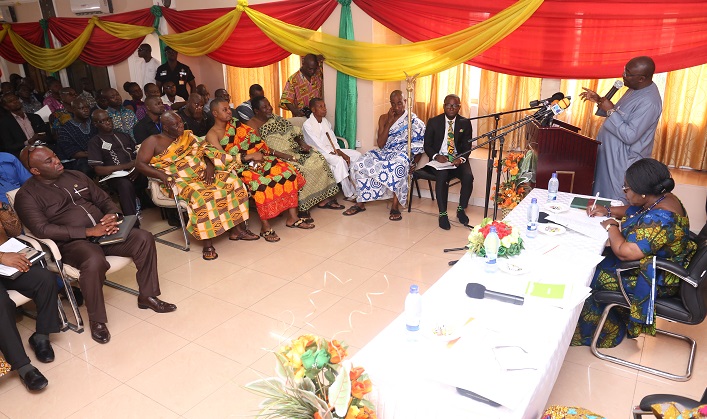
Development Authority Bill to be laid before Parliament next week
The Development Authority Bill that will set up three development authority for the northern, middle belt and coastal areas is to be laid before Parliament next week.
The passage of the bill would facilitate the setting up of the Northern, Middle Belt and Coastal Development Authorities to manage the developmental challenges of the various parts of the country.
The Vice-President, Dr Mahamudu Bawumia, who announced this at Dodowa yesterday, said prior to the passage of the bill, the government had decided to jump-start activities and programmes in readiness for the passage of the bill.
He was speaking at the inauguration and orientation programme for the 10-member regional teams on the Infrastructure for Poverty Eradication Programme (IFEP).
The New Patriotic Party (NPP) in its manifesto for the 2016 election promised to set up three development authorities— the Northern, Middle Belt and Coastal Development Authorities—to manage the developmental challenges of the various parts of the country.
Jump-starting process
“What we are doing is basically trying to jump-start the process. We have been in the process of putting the Development Authority Bill together for a few months now and if all goes well, the bill would be laid in Parliament by next week,” Dr Bawumia stressed.
Per the directive of the President, he said, it was very important for the 10-member regional teams to be constituted so that they would start doing an analysis of the needs of the various constituencies after consulting the various stakeholders.
The idea, he said, was that by the time the development authorities were constituted, the teams would have, essentially, collected and collated all the needs items of the various constituencies.
The next process, he said, was for procurement and action, “otherwise we will wait for the development authority to be set up before moving in to do needs assessment. But once this is done, we jump-start the programme and go in for procurement so that by the end of our first term, we would know that all is done,” he explained.
The Vice-President told the team members that they would be addressing the needs of the communities of the country, saying that was something that had not been done in a very long time.
“We are making history and, together, Ghana is making history. We want to make sure that everybody is part of our development process and we are not leaving anyone behind,” he said with confidence.
Great assignment
Dr Bawumia told the team members that the President was placing the most important project of his administration in their capable hands.
“Your prompt response to our call assures us that we can count on your full cooperation and support in the implementation of these critical local infrastructure and other development programmes aimed at eradicating poverty,” he said.
Dr Bawumia said over the years, various governments had embarked on the fight against poverty but the incidence of poverty remained high and pervasive.
“Between 1990 and 2013, extreme poverty levels dropped from 37.6 per cent to 9.6 per cent but at the same time, there were still growing inequalities, regional disparities in welfare and a deteriorating macro-economic environment,” he enumerated.
“After 60 years of independence, the major need is a borehole. After 60 local budgets where we have been allocating money for development, both central and local, the major need of people in the villages is a toilet,” he lamented.
Dr Bawumia said the time had come for that paradigm to be set aside for allocations to be made directly to the public and added that, that was what had prompted the idea of trying to bring about the “Infrastructure for Poverty Eradication Programme”.
